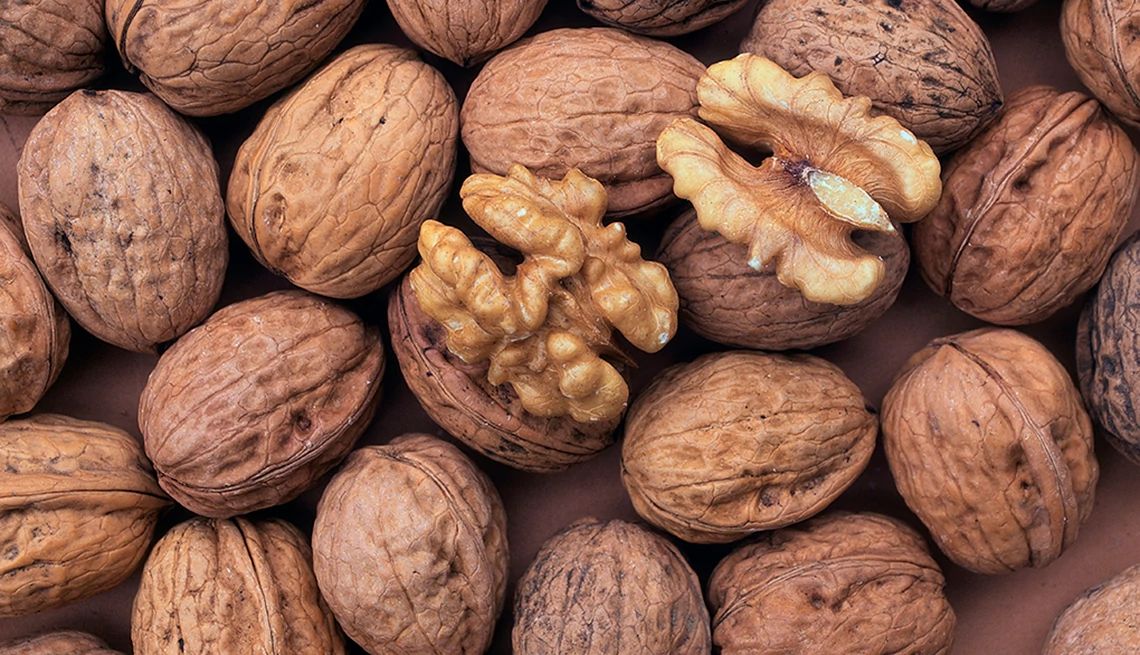Challenges


Walnuts have long been linked to better heart health. Research from the David Geffen School of Medicine at UCLA shows these tasty tree nuts may be good for the brain, too.
Study scientists used data from the National Health and Nutrition Examination Survey (NHANES), which includes a large sampling of the U.S. population, to connect the dots between walnut consumption and better cognition. The March 2015 study, done with partial funding from the California Walnut Commission and published in the Journal of Nutrition, Health & Aging, found that among people age 60 and over, those who ate about six to seven walnut halves daily performed better than people who ate none on a series of six brain function tests, including tests of memory, concentration and information-processing speed. “We saw an effect in people who ate a handful of walnuts per day,” says head researcher Lenore Arab, a professor of epidemiology and biological chemistry at the school.
Scientists haven’t yet isolated the walnut’s key brain-boosting compounds. “There are numerous possible active ingredients, ranging from the high antioxidant content of walnuts or the combination of numerous vitamins and minerals, as well as the fact that they are the only nut that contains a significant source of alpha-linolenic acid (ALA), a plant-based omega-3 fatty acid,” says Arab. Omega-3 fatty acids have been shown to lower risk of heart disease and improve cholesterol, and some research suggests they may relieve symptoms of depression and rheumatoid arthritis.
“For now, we just know that walnut eaters in the U.S. population perform better on tests of cognitive function than those who don’t eat walnuts,” Arab says.
That was the case in a more recent study published in 2020 in Public Health Nutrition involving 3,632 adults ages 65 years and older. Researchers at Texas State University in San Marcos, Texas, and the University of Texas at Austin, who also used NHANES data and support from the California Walnut Commission, found that people who who ate any amount of walnuts scored higher on cognitive tests than those who shunned the nut. Those who included a moderate amount of walnuts in their diets did even better. However, the authors noted that other healthful behaviors in the moderate consumption group could explain these findings.
Although that study didn’t define the optimal amount of walnuts needed to preserve brain power, other research, from New York State Institute for Basic Research in Developmental Disabilities in 2020 in the journal Nutrients, suggests that one to two ounces a day — about a small handful — provides cognitive benefits.
“It’s not every day that research results in such simple advice,” says Arab, “that eating a handful of walnuts a day can help improve your cognitive health.”











More From Staying Sharp
Offload To-Dos at Bedtime
Defuse concerns that can disturb your slumber
6 Habits to Support Your Brain Health
Your daily life can have a big impact on your memory and mental skills
Sleep Better Together
What to do if your partner’s snoring or tossing and turning keeps you up